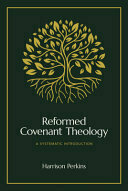
When it comes to reading and studying Scripture, having a faithful and reliable translation is crucial. Over the years, I have found three English Bible translations to be particularly beneficial: the English Standard Version (ESV), the New English Translation (NET), and the King James Version (KJV)—in that order. Each of these translations brings unique strengths, making them valuable for different aspects of study, devotion, and ministry.
The English Standard Version (ESV) – My Go-To Translation
The ESV has become my primary translation for preaching, teaching, and personal study. As a formal equivalence translation (word-for-word), it retains accuracy while maintaining readability. Rooted in the Tyndale-King James tradition, it offers theological precision and literary beauty.
Why I Prefer the ESV:
Theological Clarity – It preserves essential doctrinal terms like "propitiation" (Romans 3:25) and "predestined" (Ephesians 1:5), which are critical to a Reformed understanding of salvation.
Balance of Accuracy and Readability – While faithful to the original text, it remains highly readable and useful for congregational and personal study.
Widely Used in Reformed Circles – The ESV is the preferred translation in many Reformed churches, seminaries, and ministries, making it a strong choice for consistency in study and teaching.
The New English Translation (NET) – A Study Bible’s Best Friend
The NET Bible is my favorite for deep study because of its extensive translator's notes. While it takes a mediating approach between word-for-word and thought-for-thought translation, its strength lies in the transparency it provides about translation choices and textual variants.
Why the NET is Valuable:
Unparalleled Translator’s Notes – It provides detailed explanations of textual decisions, which is invaluable for those who want to understand the nuances of the original Hebrew and Greek.
Usefulness in Academic and Personal Study – Its digital-first approach makes it a powerful resource for scholars and students of the Word.
Modern Language Without Theological Compromise – While slightly more readable than the ESV, it still maintains a high level of faithfulness to the text.
For anyone who wants to go deeper into exegesis and textual criticism, the NET Bible is an excellent tool to have alongside a more literal translation like the ESV.
The King James Version (KJV) – The Beauty of Tradition
Despite its archaic language, the KJV remains one of my favorite translations for devotional reading and memorization. Its literary grandeur and historical significance make it a treasure of the English-speaking Christian world.
Why the KJV Still Matters:
Majestic Language – The poetic and rhythmic structure of the KJV makes Scripture memorable and beautiful.
Historical Influence – It has shaped Christian thought and doctrine for centuries, making it a foundational translation in church history.
Strong Manuscript Tradition – While based on the Textus Receptus, which differs from modern critical texts, it still faithfully conveys the doctrines of Scripture.
Conclusion: A Well-Rounded Approach
Each of these translations serves a different but complementary role:
ESV – Best for preaching, teaching, and everyday study.
NET – Best for in-depth study and understanding textual choices.
KJV – Best for tradition, memorization, and literary appreciation.
By using all three, I gain a fuller and richer engagement with Scripture. Whether I am preparing a sermon, conducting theological study, or simply reading devotionally, these three translations help me stay anchored in the truth of God’s Word.
